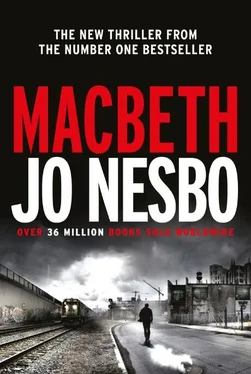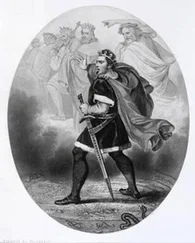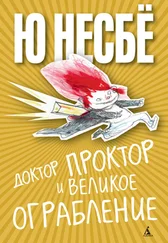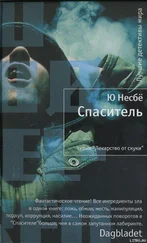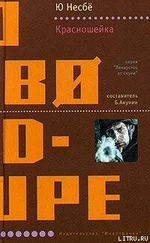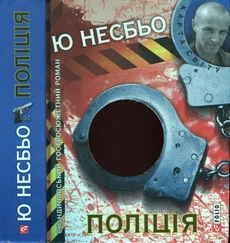‘Course is fine,’ the pilot said.
‘Let’s hope so,’ the captain mumbled. ‘Let’s hope so.’
Ten minutes past one. Ten minutes ago a large elk head had come out of an elk clock and mooed. Angus looked around. He regretted the choice of place. Even if it was only unemployed layabouts and drunks at the Bricklayers Arms during the day now, it was the SWAT local, and if someone from police HQ saw him and the reporter talking it would soon get to Macbeth’s ears. On the other hand, it was less suspicious than sitting in some bar hidden in the back streets.
But Angus didn’t like it. Didn’t like the elk. Didn’t like it that the journalist still hadn’t arrived. Angus would have gone long ago if this hadn’t been his last chance.
‘Sorry for being late.’
The rolled ‘r’s. Angus looked up. It was only the voice that reassured him the man standing there in yellow oilskins was Walter Kite. Angus had read that this radio reporter consistently said no to TV and being pictured in newspapers and celeb magazines, as he considered a person’s appearance a distraction from the story. The word was everything.
‘Rain and traffic,’ Walt Kite said, undoing his jacket. Water ran from his thin hair.
‘It’s always rain and traffic,’ Angus said.
‘That’s the excuse we use anyway,’ the radio reporter said and sat down opposite him in the booth. ‘The truth is the chain came off my bike.’
‘I thought Walter Kite didn’t lie,’ Angus said.
‘Kite, the radio reporter, never lies,’ Kite said with a wry smile. ‘Walter, the private person, is a long way behind.’
‘Are you alone?’
‘Always. Tell me what you didn’t say on the phone.’
Angus drew a deep breath and began to speak. He experienced nothing of the nerves he had felt when he had presented his information to Lennox and Caithness. Perhaps because the die was already cast; there was no way back. He used more or less the same words he had at Estex the day before, but also told Kite about the meeting with Lennox and Caithness. He gave Kite everything. The names. The details about the club house and Fife. The order to burn the baby’s body. While they were speaking Kite took a serviette from the box on the table and tried to wipe the black oil off his hands.
‘Why me?’ Kite asked, taking a second serviette.
‘Because you’re considered to be a brave reporter with integrity,’ Angus said.
‘Nice to hear people think so,’ Kite said, studying Angus. ‘Your language is more elevated than other young police officers’.’
‘I studied theology.’
‘So that explains both the language and why you want to expose yourself to this. You believe in salvation for good deeds.’
‘You’re mistaken, Mr Kite. I don’t believe in either salvation or divinity.’
‘Have you spoken to any other journalists—’ he smirked ‘—with or without integrity?’
Angus shook his head.
‘Good. Because if I work on this case I need total exclusivity. So not a word to other journalists, not to anyone. Are we in agreement?’
Angus nodded.
‘Where can I get hold of you, Angus?’
‘My phone number—’
‘No phones. Address.’
Angus wrote it down on Kite’s oil-stained serviette. ‘What happens now?’
Kite heaved a sigh. Like a man who knew there was an immense amount of work in front of him.
‘I have to check a few things first. This is a big case. I wouldn’t like to be caught presenting false information or be suspected of being part of someone’s agenda.’
‘My only agenda is that the truth should come out and that Macbeth is stopped.’
Angus knew he had raised his voice when Kite looked around the sparse clientele to make sure no one had heard. ‘If it’s true, you’re lying when you say you don’t believe in divinity.’
‘God doesn’t exist.’
‘I’m thinking about divinity in humans , Angus.’
‘You mean the humanity in humans, Kite. Wanting goodness is as human as sinning.’
Kite nodded slowly. ‘You’re the theologian. Although I have to confess I believe you, I’ll have to check out the story — and you as a person. I think that’s what’s called—’ he got to his feet and buttoned up his oilskin jacket ‘—integrity.’
‘When do you think this can appear in print?’ Angus breathed in and then let it out again. ‘I don’t trust Lennox. He’ll go to Macbeth.’
‘I’ll prioritise the story,’ Kite said. ‘It should be mainly finished in two days.’ He took out his wallet.
‘Thank you. I’ll pay for my own coffee.’
‘Right.’ Kite put his wallet back in his jacket. ‘You’re a rare bird in this town, you know.’
‘Definitely in danger of extinction.’ Angus smiled weakly.
He watched the reporter until he was out of the door. Looked around the pub. No one conspicuous. Everyone seemed occupied with their own business. Two days. He had to try and stay alive for two days.
Seyton didn’t like Capitol. Didn’t like the broad avenues, the magnificent old parliamentary buildings and all the other shit — the green parks, the libraries and the opera house, the street artists, the tiny Gothic churches and the ridiculously extravagant cathedral, the smiling people in the pavement restaurants and the expensive national theatre with its pompous plays, incomprehensible dialogue and megalomaniac kings who die in the last act.
That was why he preferred to stand like this, with his back to the town and his eyes across the sea.
They were inside the harbour office and could see MS Glamis now.
‘Sure you don’t want any help?’ asked the policeman with the CAPITOL POLICE patch on his uniform. There had been a discussion about jurisdiction before they arrived, but Capitol’s chief commissioner had been cooperative, partly, he had said, because they felt the murder of a policeman in another town affected them, partly because you can make exceptions on board vessels.
‘Thank you again, but I’m very sure,’ Seyton said.
‘Fine, but when he’s been arrested and brought ashore, we take over.’
‘Absolutely. As long as you keep an eye on the gangway and the ship.’
‘He won’t get away, Inspector.’ The Capitol policeman pointed to the plain-clothes policemen in two rowing boats fifty metres from the quay. The officers were pretending to fish, but were ready to catch Duff if he jumped overboard.
Seyton nodded. It wasn’t so long since he had been standing waiting in another harbour office. That time it had been Duff who had refused help, the stupid idiot. But the roles were changed now. And he would make sure Duff knew. He would make him feel it. For some endlessly long seconds. The Capitol Police knew nothing of Macbeth’s orders of course: Duff was not to be brought but carried ashore. In a body bag.
The Glamis reversed, and the sea was whipped white below the surface, then the white water rose and bubbled like champagne. Seyton loaded his MP-5. ‘Olafson. Ricardo. Ready?’
The two SWAT men nodded. They had drawings of the boat showing the cabin where Duff was.
Hawsers were thrown from the Glamis onto the quay, one from the bow and one from the stern, coiled around bollards and tightened. The side of the boat pushed gently against screaming tyres. A gangway was lowered.
‘Now,’ Seyton said.
They ran out across the quay and up the gangway. The crew stared at them open-mouthed; the captain had obviously managed to keep the secret. They rushed down an iron ladder past what was labelled the first mate’s cabin. Further down. And further down. Stopped outside the door of cabin 12.
Seyton listened but heard only his own breathing and the rumble of the engines. Ricardo had taken up a position further down the corridor where he could keep an eye on the nearby doors, in case Duff was in a different cabin, heard them and tried to make a getaway.
Читать дальше
